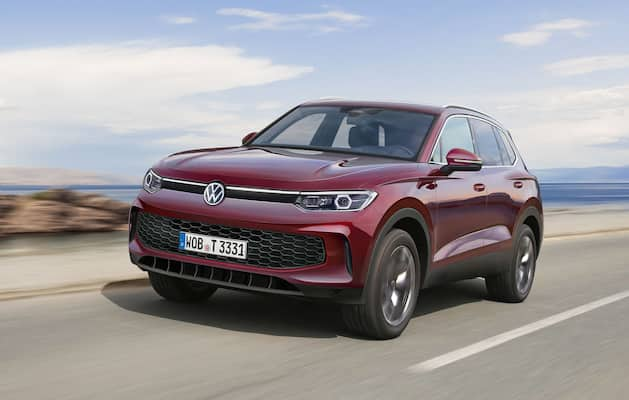Volkswagen is currently turning its model portfolio inside out. Classic cars with combustion engines will be less in demand in the future, with the electric ID family setting the tone. However, the Tiguan remains a constant.
Many of the models that Volkswagen currently has in its combustion engine portfolio will not make it into the next generation. You will not get a successor and at most a facelift to stay fit for the second half of the 2020s. However, VW wants to hold on to the Tiguan. The SUV has been around since 2007. The car was successful in all important VW markets – Europe, USA, China.
Even though the ID family will continue to grow over the next few years and will have a new entry-level model in the form of the ID2, the Tiguan will still be rock solid with combustion engines. In the meantime, the crossover has gotten a bit old and faces strong competition from the small T-Roc in-house. The revised Tiguan will be subtly reworked, slightly more modeled on the flank and should remain so attractive for the next seven years. With a smoothed front and a new rear design, the car will even look a bit like the electric ID models.
The SUV will be relaunched in the second half of 2023. The IAA could come at just the right time in autumn 2023 to celebrate the premiere. But the two wheelbases are a thing of the past: the normal Tiguan is growing in length and width, which makes the seven-seater Tiguan XL, which is particularly successful in the USA, superfluous.
The Tiguan is technically unchanged on the modular transverse matrix of the Volkswagen Group. There is a step backwards in the cockpit, but at the request of the customer: the operation will be a little more conventional again. “As early as next year, we will be introducing an easy-to-use button steering wheel with the new Passat and the new Tiguan, which will then be gradually installed in all vehicles,” said VW brand boss Thomas Schäfer recently at the “Auto Motor
Depending on the market, the Tiguan will continue to be offered as a petrol and diesel engine, with the plug-in hybrids (PHEV) becoming more important and being linked to the 1.5-liter turbo petrol engine in the future. Their purely electric range will be well over 80 kilometers. The flaw that the current VW Tiguan PHEV is only available with front-wheel drive should also be a thing of the past with the new model generation. The range of engines remains unchanged, ranging from around 150 to over 300 hp.
The VW Passat will also be renewed in 2023, albeit probably for the last time. Under the hood there will be only slightly modified petrol and diesel drives with 150 to 220 hp compared to the current Passat. The super-tight Euro 7 emissions standard will not come into effect for new cars until 2025, around a year after the expected launch of the Passat B9.
By 2024, VW wants to have sold so many electric cars that the Passat could then become more of a niche model. Especially since the prices are likely to rise sharply compared to the current model, analogous to the VW Golf. There is speculation in the industry about a starting price of at least 35,000 euros. The Passat Variant currently starts at 33,650 euros.
The Passat and Tiguan are still bestsellers – in the off-road vehicle segment, the Tiguan still sets the tone in Germany. But the electric competition threatens from all corners, not just from Tesla. Chinese manufacturers from Polestar to Nio to Lynk
By 2033, VW will only be relaunching electric models for Europe. After ID3, ID4, ID5 and ID Buzz comes the small electric SUV ID2. The ID7 is to be a large sedan that, with a range of 600 kilometers, would be a kind of electric replacement for the Passat.
Over 9 million Germans move every year, over 25,000 a day! So that you do not experience any nasty surprises with the current energy prices, you must take care of the termination in good time. Because: If you do nothing at all, the costs could double in extreme cases.
Almost 20 percent of all oil tankers leaving Russia fully laden these days have no destination. Only on the journey does it become clear to them where they will land. This leads to strange situations on the oceans and dwindles Russia’s oil revenues.
The federal government is nationalizing the ailing gas company Securing Energy for Europe (Sefe). The Ministry of Economics justified corresponding capital measures with an imminent insolvency of the former Gazprom subsidiary. Insolvency would endanger the security of supply in Germany, they say.








